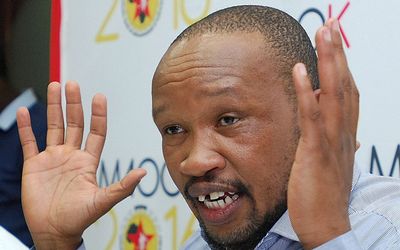
IF THE Congress of South African Trade Unions (Cosatu) splits, labour relations may become more difficult in the short term. After that, they might get just the boost they need.
While key African National Congress (ANC) leaders continue to try to persuade Cosatu’s leadership not to expel its largest union, the National Union of Metalworkers of SA (Numsa), a consensus seems to have emerged that Numsa will be thrown out of Cosatu. Consensus, of course, is not always right. Even if Numsa is expelled, it may take the matter to court and may win.
But, if Cosatu does throw Numsa out and the courts don’t tell it to take it back, the result could shake up politics and labour relations. A previous column discussed the political fallout. How would labour relations be affected?
If Numsa does go, it is unlikely to go alone. While Cosatu’s internal disputes are usually portrayed as battles between unions, the divisions run through unions. So, if Numsa is expelled, Cosatu will quickly form a metal union and compete for its members. But within all Cosatu’s unions are members who might prefer to leave with Numsa. So an expulsion is unlikely to end with a lone Numsa waving its fist at a united Cosatu.
It is more likely to produce splits in several unions — there is already talk of a new public-service workers’ union formed by former members of Cosatu’s South African Democratic Teachers Union — and, quite possibly, in two federations competing for those workers who now belong to Cosatu unions.
As the ANC leaders who have worked to prevent a break know, that will probably make life more difficult for Cosatu. But it may also make industrial bargaining harder.
If federations are competing for membership, they are likely to work harder to show workers that they can get them better deals than their rivals. This should prompt them to ask for more and give away less. An early test may be the public sector pay negotiations. It can safely be assumed that the ANC leadership is urging unions to moderate their wage demands. If Cosatu does not split, the public sector unions, whose leadership is part of the group that wants closer links with the ANC leadership, may well show loyalty by reducing their demands.
But if Numsa is expelled and it begins to seem that a rival to Cosatu is on the horizon, they will be under pressure to show that they are batting for members — they will be particularly open to the charge that they are cosying up to the government and particularly keen to show that they aren’t. And so they will drive a harder bargain.
Similar patterns would be likely throughout the economy and the result could be more labour turbulence.
If this does happen, it is likely to trigger a panic among commentators, politicians and some investors. It does not take much strike action here to get people rolling out the usual image of this economy as a war zone — last year is seen as a huge strike year, despite the fact that working days lost were 42% down on the previous year.
If we do see increased labour turmoil, a chorus predicting doom is inevitable. But in reality, heightened competition between unions may be the key to a healthier labour environment.
One reason for turmoil on the mines, it is widely agreed, is that the industry’s major union lost touch with its members. Key groups of workers felt their interests were being ignored — they took action to change this and the result was lengthy conflict in platinum mines. An easier ride at the negotiation table ensured damaging conflict later.
Mining is not the only industry in which unions have become detached from the concerns of members. While this has usually not triggered similar conflict, as the economy becomes more difficult, the risk will grow.
Unionists who don’t drive a hard bargain on behalf of their members may seem good for industrial peace in the short term. But, as the platinum mines show, they might be very bad for it later. A bargaining system in which agreements are more likely to stick because they represent what workers are prepared to accept (rather than what union negotiators endorse) is likely to be more stable.
That is why competition between union federations may help after a while: unionists will have much more reason to make sure they know what members want and to pull out all the stops at the bargaining table to try to get it. And so it is likely that, after a period of turbulence, bargaining will become more reliable because agreements are more likely to reflect the real balance of power in industries.
Unionists who ignore the interests of workers are not doing anyone any favours. In a country where divisions and economic disparities are still large, hard bargaining is a key to stability, whatever those who see unions as a cause for panic may say.
If Cosatu’s travails produce a union movement more militant but more able to make deals that stick because they enjoy the support of members, the economy is likely to be the winner.
• Friedman is director of the Centre for the Study of Democracy.
Article by : Steven Friedman.
Article source : Business Day
